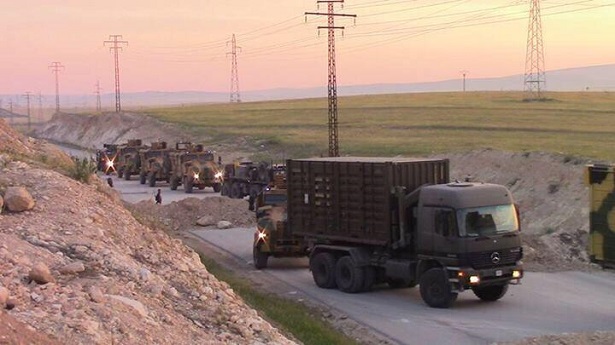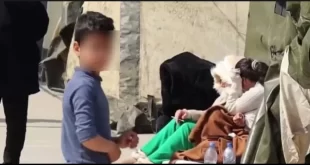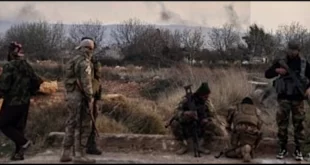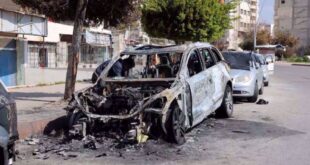Turkish Troops deployed 200 Meters from ISIL Al Qaeda affiliated Mercenaries – Deployment of Mercenaries to Suleyman Shah Tomb an Engineered Pretext for a Turkish Invasion
Now also officially, Turkey’s Prime Minister R. Tayyip Erdogan said he has sent Turkish troops 25 kilometers into Syria. To “send aid” to the tomb of Suleyman Shah, the grandfather of Osman I who founded the Ottoman Empire, he claims. Turkish special forces have been observed in Syria, cooperating with mercenary forces, since 2012.

Responding to allegations that Turkey has launched joint operations with the Islamic State of Iraq and Levant (ISIL) in Syria, Turkey’s Prime Minister R. Tayyip Erdogan responded saying that a Turkish convoy had carried “aid” to the tomb of Suleyman Shah.The tomb is located 25 kilometers inside Syrian territory and remains under Turkish sovereignty under The Franco – Turkish Pact of 1921. The treaty, however, does not provide for unauthorized Turkish troop deployments, especially not when these troops are cooperating with an international brigade of mercenaries in Turkish service, who are fighting the Syrian armed forces.
Erdogan made the statement to journalists on children’ day, two days ago, while he was at en event with primary school students in Ankara. Later on, at an official reception at Turkey’s parliament, Turkey’s Foreign Minister, Ahmed Davotoglu, said that the deployment is a “routine change of duty” of the Turkish troops which are guarding the tomb. Army Commander General Hulusi Akar described the deployment of the 300 men strong convoy as “planned activity”.
Reports in social media associated to ISIL reported earlier that day, that Turkey had sent 6 tanks, 12 armored vehicles and 300 Turkish troops. Quoting eyewitnesses, the reports added that the Turkish detachment had taken position 200 meters away from a position held by the ISIL.
March 14, Davotoglu warned that “Turkey would have to take all precautions to protect the tomb”. The statement was made after clashes between Syrian armed forces and ISIL in the region near the tomb. The Turkish Foreign Minister’s statement was followed by a statement of Turkey’s Energy Minister, Taner Yaldiz on March 20. Yaldiz said:
“The tomb of Suleyman Shah is a rare place, being Turkish land outside of Turkey’s own borders. There is no difference between the tomb in Ankara or Sinop. The soil on which it is located is Turkish soild. Our armed forces are ensuring and protecting it”.
The tomb is located 25 kilometers within Syrian territory in Aleppo province. Turkish sovereignty over the tomb was granted by the former colonial power France in 1921, and the agreement was renewed when Syria won independence in 1936.
Turkey can, arguably, claim that the deployment of troops to sovereign territory does not elevate the conflict to an international conflict. Turkey, as well as its allies including the former colonial power France claim that the conflict is a civil war. Turkey’s and its allies use of international mercenaries, however, has already elevated the situation to an international war according to international law. Moreover, the admitted involvement of the former colonial power France made the conflict an international conflict under the extended protocols of the Geneva Conventions.
ISIL position 200 meters from Suleyman Shah tomb a Turkish engineered provocation . Even though the tomb is on a patch of sovereign Turkish territory, there are a number of factors that contradict the argument that Turkey would have to “protect” the tomb from Syrian armed forces or from ISIL.
With regards to ISIL, its brigades are being financed and armed by Turkey, along with other members of the anti-Syrian coalition, and its command structure is, despite attempts to cover up the fact, highly integrated with Turkish military as well as Turkish and Western as well as Saudi intelligence. It is, in every sense of the word, an international corps of mercenaries in the service of Turkey and its allies against Syria.
With regard to the Syrian Arab Army, the Syrian Arab Army would not have to deploy troops anywhere near the Turkish national shrine, was it not for the fact that ISIL has entrenched itself in a position no more than 200 meters away from the tomb.
Turkish troops deployed on Syrian territory since 2012. While the situation at and around the tomb, including ISIL and regular Turkish troops is a provocative act of war, the deployment of Turkish troops to Syrian territory is no novum.
Turkish troops have been deployed in Syria since 2012, assigned to different roles including arms deliveries, command and intelligence operations as well as special operations. To mention but a few:
In August 2012 a Turkish General was reported captured in the Syrian city of Aleppo. Turkey denied, and it could not be verified independent that the officer was a general. The capture of a Turkish officer, however, was independently verified for us.
April 2013, Turkish regular troops, special forces, and airmen were involved in the attempt to capture the Minnegh military air field. Turkish troops were fighting alongside Jabhat al-Nusrah fighters. March 2014, eyewitnesses reported about the presence of Turkish special forces in Syria’s Lattakia province, guiding Turkish artillery, missile and tank fire while thousands of Jabhat al-Nusrah fighters swarmed across the Turkish border into Syria.
The deployment of ISIL mercenaries and the provoking of clashes between the Syrian army and ISIL near the tomb as pretext for the deployment of Turkish troops is provocative but not surprising.
 Syria Support Movement solidarity with the Syrian people
Syria Support Movement solidarity with the Syrian people











